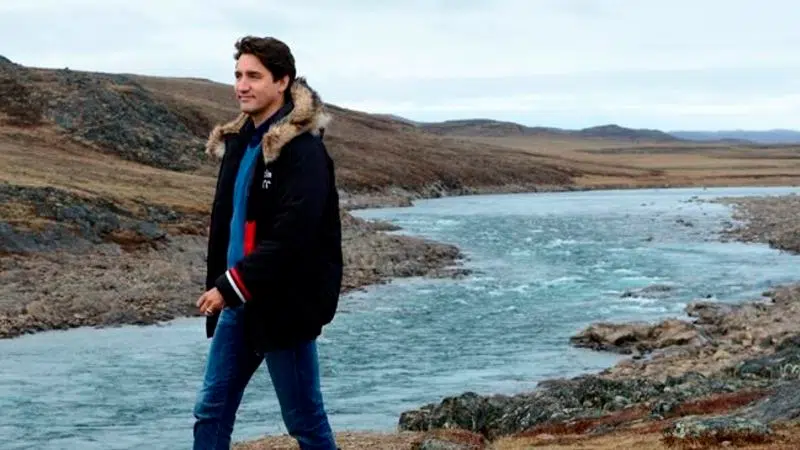
Trudeau highlights climate-change plan in Arctic, which is vulnerable to warming
IQALUIT, Nunavut — Liberal Leader Justin Trudeau travelled to Nunavut on Tuesday, where he highlighted his promise to protect the High Arctic against climate change and address the concerns of northern residents if re-elected to power in the Oct. 21 vote.
“Like so many of our friends in the North, you are truly on the front lines of the fight against climate change,” Trudeau said in Iqaluit.
“Canada is warming at twice the global rate and our North is heating up at three times the global average,” said Trudeau, emphasizing the fact that Indigenous Peoples and their communities are especially vulnerable to the impacts.
“That means unpredictable and dangerous ice conditions for harvesters. It means disrupted Arctic ecosystems. It means species extinction,” he said.
